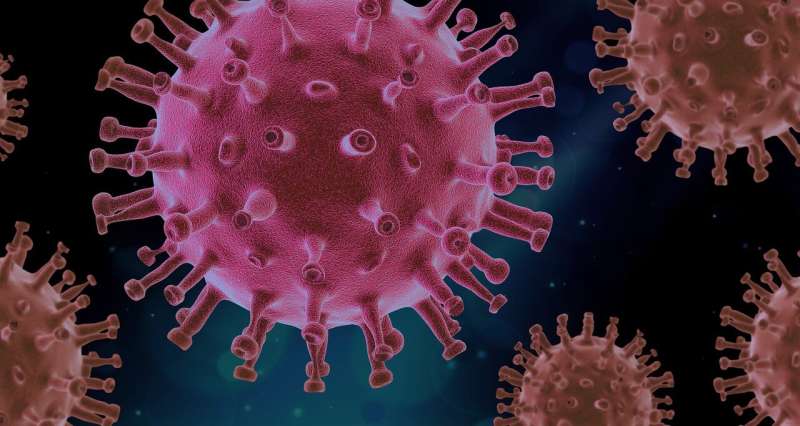
The South African coronavirus variant is better at "breaking through" the defences of the Pfizer/BioNTech vaccine than other forms of the virus, Israeli experts said Sunday.
However, one of the authors told AFP that while the study showed the variant to be relatively successful in infecting vaccinated people, it did not provide any data on whether it could generate serious illness among vaccinees.
The study by Tel Aviv University and Clalit Health Services, Israel's largest healthcare provider, compared 400 unvaccinated people infected with COVID-19 to 400 partially or fully vaccinated people who also had the virus.
According to the study, published as a draft on Saturday and currently being peer reviewed, the South African variant accounted for less than one percent of coronavirus cases in Israel.
But, among the 150 people in the study who were fully vaccinated and had COVID-19, "the prevalence rate (of the South African variant) was eight times higher than the rate in the unvaccinated (individuals)," the study said.
"This means that the Pfizer-BioNtech vaccine, though highly protective, probably does not provide the same level of protection against the South African (B.1.351) variant of the coronavirus," the study added.
"The South African variant is able, to some extent, to break through the vaccine's protection," said professor Adi Stern of Tel Aviv University's Shmunis School of Biomedicine and Cancer Research, one of the study's authors.
Stern told AFP Sunday the study did not assess whether the fully vaccinated Israelis with the South African variant—eight people in total—developed serious illness.
"Since we found a very small number of vaccinees infected with B.1.351, it is statistically meaningless to report disease outcomes," he said.
Preventative measures
Two studies published in February in the New England Journal of Medicine conducted by principal vaccine manufacturers Pfizer/BioNTech and Moderna showed that the presence of antibodies after vaccination was less pronounced in people exposed to the South African variant, indicating diminished protection.
The Israeli study was the first real-world assessment of the South African variant's ability to bypass a vaccine.
Israel's vaccination campaign has seen 5.3 million people receive a first dose, while 4.9 million, or 53 percent of the population, have had two shots.
An earlier study by Clalit on 1.2 million Israelis found that the Pfizer/BioNTech jab gave 94 percent protection against COVID-19.
Following the successful vaccination rollout, Israel has eased many of its restrictions but various measures remain in place including mask-wearing and a "green passport" system that grants access to certain sites only to those vaccinated.
Ran Balicer of Clalit, one of the study's authors, told AFP the results could help inform states on how best to ease restrictions.
Balicer said inoculations, plus mask-wearing and other safety measures had still likely helped limit the spread of the South African variant, despite its apparent ability to break through the Pfizer/BioNTech vaccine.
A combination of all these factors "are most likely... preventing the virus strains, including the South African one, from spreading" significantly in Israel, he said.
"As we taper down the non-pharmaceutical interventions, we must do so gradually to ensure we do not cross a threshold that would enable these variants to spread."
Explore further
© 2021 AFP
Citation: S. African COVID variant better at bypassing Pfizer/BioNTech jab: Israeli study (2021, April 11) retrieved 11 April 2021 from https://ift.tt/3uIPyzO
This document is subject to copyright. Apart from any fair dealing for the purpose of private study or research, no part may be reproduced without the written permission. The content is provided for information purposes only.
https://ift.tt/3g08PbF
Business
Bagikan Berita Ini














0 Response to "S. African COVID variant better at bypassing Pfizer/BioNTech jab: Israeli study - Medical Xpress"
Post a Comment